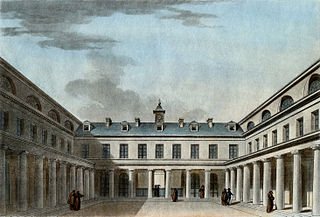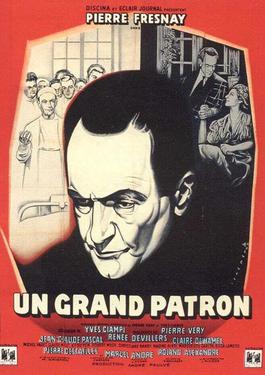This is a list of members of the Walloon Parliament between 1999 and 2004, following the direct elections of 1999.
This is a list of members of the Walloon Parliament between 1999 and 2004, following the direct elections of 1999.
| Party | Seats | +/– | |
|---|---|---|---|
| Socialist Party (Parti Socialiste, PS) | 25 | ||
| Liberal Reformist Party (Parti Réformateur Libéral, PRL) | 21 | ||
| Ecolo (ECOLO) | 14 | ||
| Christian Social Party (Parti Social Chrétien, PSC) | 14 | ||
| National Front (Front National, FN) | 1 | ||
| 75 | |||
| Representative | Electoral district | |
|---|---|---|
| Alain Sadaune |

The Prix de Rome or Grand Prix de Rome was a French scholarship for arts students, initially for painters and sculptors, that was established in 1663 during the reign of Louis XIV of France. Winners were awarded a bursary that allowed them to stay in Rome for three to five years at the expense of the state. The prize was extended to architecture in 1720, music in 1803 and engraving in 1804. The prestigious award was abolished in 1968 by André Malraux, then Minister of Culture, following the May 68 riots that called for cultural change.

France competed at the 1972 Summer Olympics in Munich, West Germany. 227 competitors, 197 men and 30 women, took part in 132 events in 18 sports.
These are the results of the November 6, 2005, municipal elections in Quebec for the region of Abitibi-Témiscamingue. Some mayors and councillors were elected without opposition from October 14, 2005. For the offices in election, other candidates are listed under the winner.

France competed at the 1960 Summer Olympics in Rome, Italy, and failed to win a single gold medal for the second time only in the history of the modern Olympic Games. 238 competitors, 210 men and 28 women, took part in 120 events in 19 sports.

The Lycée Condorcet is a school founded in 1803 in Paris, France, located at 8, rue du Havre, in the city's 9th arrondissement. It is one of the four oldest high schools in Paris and also one of the most prestigious. Since its inception, various political eras have seen it given a number of different names, but its identity today honors the memory of the Marquis de Condorcet. The school provides secondary education as part of the French education system. Henri Bergson, Horace Finaly, Claude Lévi-Strauss, Marcel Proust, Jean-Luc Marion, Francis Poulenc and Paul Verlaine are some of the students who attended the Lycée Condorcet.
European Parliament elections were held in France on 12 June 1994. Six lists were able to win seats: an alliance of the centre-right Union for French Democracy and the Gaullist Rally for the Republic, the Socialist Party, the Left Radical Party, the French Communist Party, the National Front and Philippe de Villiers' eurosceptic right-wing dissident UDF list, which formed the Majorité pour l'autre Europe. 53.5% of the French population turned out on election day, actually an improvement on the last election in 1989. The Greens, who were weakened by an Ecology Generation list led by Brice Lalonde and also suffering from internal divisions between the party's left and the right, lost all 9 seats won in 1989. Arlette Laguiller's Trotskyst Workers' Struggle (2.27%), Jean-Pierre Chevènement's left-wing eurosceptic Citizens' Movement (2.54%), the L'Europe commence à Sarajevo List (1.57%) and the agrarian populist Hunting, Fishing, Nature, Traditions (3.96%) were among the notable lists which did not pass the 5% threshold.
The CNRS Gold Medal is the highest scientific research award in France. It is presented annually by the French National Centre for Scientific Research (CNRS) and was first awarded in 1954. Moreover, the CNRS Silver Medal is given to researchers for originality, quality, and importance, while the CNRS Bronze Medal recognizes initial fruitful results.
Arthena or Association pour la Diffusion de l'Histoire de l'Art is a French company which regularly publishes art history books and most particularly catalogues.

First Secretary of the Socialist Party Martine Aubry began a campaign for the Socialist Party and Radical Party of Left presidential primary, 2011 for President of France in June 2011. Aubry announced she was running for president during a meeting in former train station of Lille-Saint-Sauveur held on 28 June 2011.

The Théâtre Daunou is a Parisian theater with 450 seats, located at 7 rue Daunou in the 2nd arrondissement of Paris. The name is sometimes written as Theatre Daunou.

Great Man is a 1951 French drama film directed by Yves Ciampi and starring Pierre Fresnay, Renée Devillers and Jean-Claude Pascal.